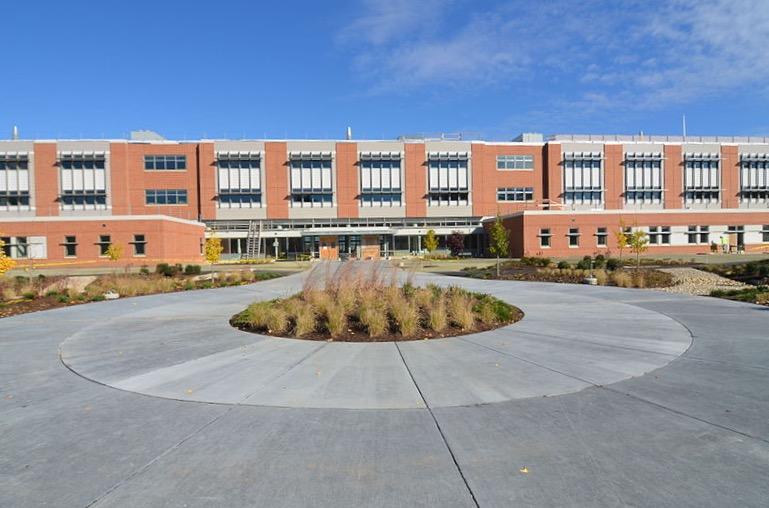Pictured above is Concord-Carlisle Regional High School. WSPN interviewed teacher Johanna Glazer about her alternative learning elective at Concord-Carlisle.
Exploring the Concord-Carlisle school within a school model
Concord-Carlisle High School social studies teacher Johanna Glazer finished her day at 2:11 by watching her history students debate on the turf. The topic: what is the role of revolutions in society? This program at Concord-Carlisle High School is a semester based elective where instead of students learning in a traditional learning environment, they have a chance to take learning outside of the classroom through a blended curriculum and into the world around them.
WHS teachers Edmund Dehoratius and Erin Lehmann explored the Rivers and Revolutions course at Concord-Carlisle High School in order to get ideas for what could be a similar program here at Wayland.
“The idea is we spend around 50% of the time in the classroom and 50% of the time out in the field, and that could be visiting historic sites, visiting museums, it could be simply using outside spaces to really get a sense of what it means to learn everywhere,” Glazer said.
The Rivers and Revolutions course takes field trips to places which include the Museum of Fine Arts in Boston, Walden Pond in Concord, as well as rivers, islands and other nature sites.
A major difference between this program and the traditional classroom experience is that there are no tests, no quizzes, no midterms and no finals. Students do a variety of assignments that act in place of these exams, and understand the message of the course.
“Students write synthesis papers for us where they take everything they are learning and use all of that information to explore an idea or a question,” Glazer said. “It’s very task based or project based. In every given lesson, students are completing some kind of task, whether it’s an artistic task or a debate or a performance, or a poem but it’s always something, so it’s very hands on experiential learning.”
According to Glazer, students’ finals are in the form of teaching the class. The final isn’t a standard PowerPoint presentation, but the student or students take control of the class and becomes the teacher.
”In my 23 years of teaching, I’ve never seen students grow so much in such a short amount of time,” Glazer said. “The biggest thing they come away with is a sense of who they are as learners and that they can learn in any environment, that learning doesn’t just happen in the classroom, that learning happens everywhere.”
